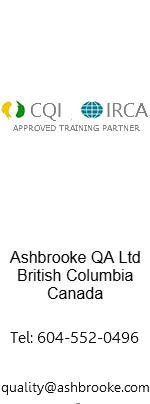Internal EMS Auditor Training Course
(2 days)
Focus Standard: ISO 14001:2015
PDF Version
Objective
On successful completion, delegates will be trained Auditors, competent to audit their own organization:
Be able to prepare, plan, conduct internal EMS audits, Be able to report the results whilst identifying efficiencies and opportunities for improvement of the Environmental Management Systems.
Interactive learning techniques are used to maximize delegate participation, including workshops designed to broaden the knowledge of system and audit applications.
Further, the delegate will be made aware of good current practices and be encouraged to develop constructive audit skills through analysis and self appraisal.
From an auditor's perspective, persons who should attend this course include:
- Personnel who audit within their own organization.
Overview
Why Audit?
|
ISO 14001:2015 is a management tool which can be used by an organization to better affect its Environmental management policies and programmes. |
It is essential for an organization to understand its performance against its requirements; and whenever possible, to identify opportunities for improvement. To achieve these objectives, an organization must set out to conduct internal reviews of itself. These are called internal audits.
Internal audits are mandated in ISO 14001:2015 through the clause 9.2.
The intent of this process is to ensure the organization's knowledge of itself and how it is performing to its requirements. This process is charged to the internal auditor, whether developed from within or hired from outside.
Success in the auditing process is characterized by reliance on a number of principles. These principles make the audit experience an efficient and reliable tool in support of management policies and controls, providing information on which an organization can act to improve its performance.
Our activities extend from Canada to Europe to Asia to Africa to Middle East.
Ashbrooke Quality Assurance Ltd. | British Columbia | Canada



